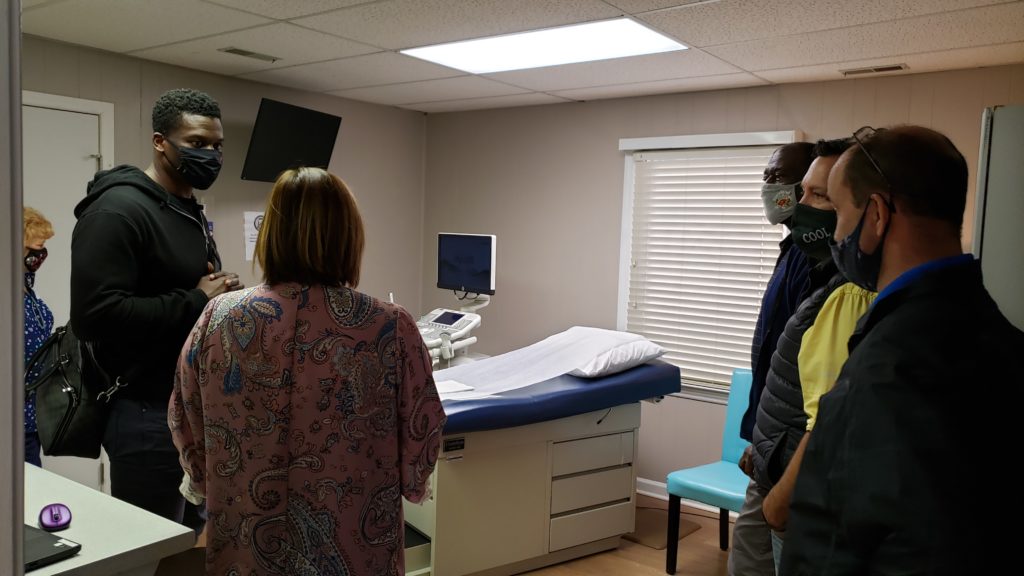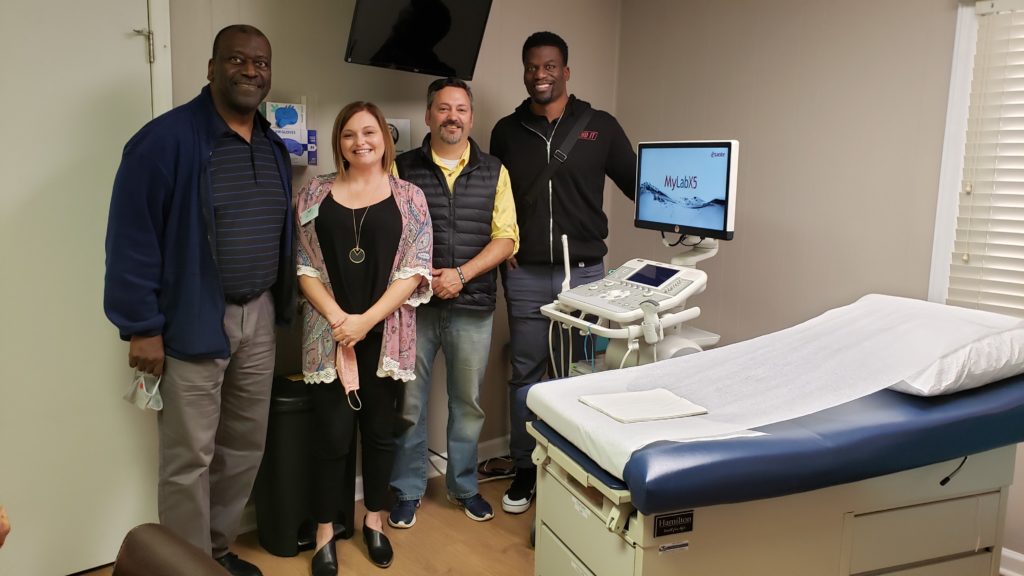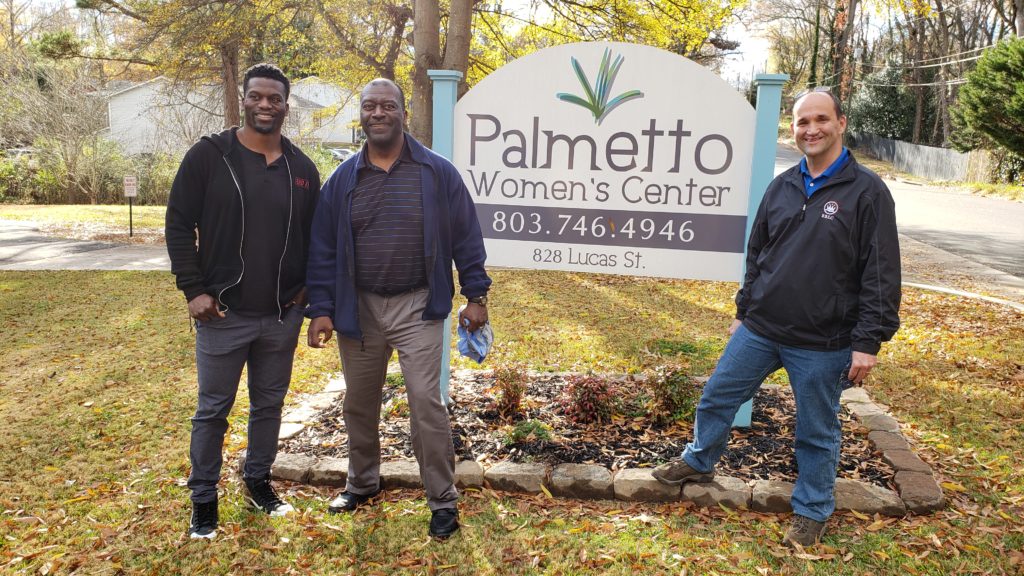On Dec. 14, former NFL tight end Benjamin Watson, along with his dad, a pastor in the area, walked into the Palmetto Women’s Center in Rock Hill, South Carolina. He was visiting the clinic where he and his wife, Kirsten, donated an ultrasound machine earlier this year through the ERLC’s Psalm 139 Project, an initiative that helps pregnancy care centers minister to abortion-vulnerable women by providing ultrasound technology and technician training.
Watson, whose family previously participated in the Psalm 139. Project, was joined by Bobby and Louise Reed from the ERLC. They were able to personally thank the center staff for the life-saving work they are doing. They heard stories from moms and dads who chose life for their preborn children after being able to see their babies in the womb using the ultrasound machine provided. Watson also met with and gave a gift to 10 families who have benefited from the center’s services.
“After seeing our preborn children through ultrasound technology,” said Watson, “we wanted to provide this life affirming opportunity to other expecting mothers. We are blessed to partner with the ERLC again to support men and women making decisions for life as well as these essential centers that continue to walk beside them.”
Watson gave each of the 10 families a financial gift to use however they wanted or needed during this holiday season. Each gift was accompanied by a handmade card from the Watsons’ seven children. When talking with the families, Watson thanked them for choosing life. He affirmed that each woman had value and worth, even if they had not chosen life previously, and took the opportunity to give a clear gospel presentation.
After the event, Starsha Thompson, the center’s director, said, “You really have no idea how much of a blessing yesterday was for all of my staff, but mainly our clients! We had three clients reach back out to us telling us how the gift impacted them. One stated, ‘I had no idea how I was going to buy groceries this week.’
A 2014 study by the pro-abortion Guttmacher Institute revealed that 75% of abortion patients were poor (having an income below the federal poverty level of $15,730 for a family of two in 2014) or low-income (having an income of 100–199% of the federal poverty level). Many were young, with 34% of abortion patients in 2014 being between 20-24 years old and 12% being between 15-19. Because so many women seeking abortions are at or near the poverty line, a lack of resources is a huge barrier to choosing life. A lack of support can also be a great barrier, with many women experiencing pressure to abort from the preborn child’s father or other family members.
These issues are present in many of the stories of the women (and men) who met with the Watsons. Each of the 10 women have received care at the women’s center, which has encouraged and allowed them to choose life. One young woman came to the center after taking the abortion pill at the persuasion of her boyfriend, who insisted they were not old enough or financially stable enough to have a child. At the center, she received the abortion pill reversal and is now living on her own with her new baby boy.
Another family is in tremendous financial need, with both parents out of work due to COVID-19 and an inability to pay for childcare. Financial need is also an issue for the single mother to a 7-year-old whose father died while she was pregnant. She is now pregnant with twins and unemployed. Yet another young woman came to the center considering abortion, fearing that a child would keep her from succeeding in her plans for school. She chose life and is now getting ready to graduate college.
According to Palmetto’s director, after COVID-19 hit, only three pregnancy centers remained open in the state of South Carolina, with Palmetto being one of them. They have had people drive two hours (one even came from four hours away) to receive their services. Being able to show expectant parents an ultrasound is often the first step to walking with them through pregnancy and beyond. The center offers mentoring and counseling, as well as meeting practical needs for diapers, formula, and clothing in an ongoing relationship with the families who come for help. Their mission statement sums up beautifully how we can all be engaged in pro-life work:
“The Palmetto Women’s Center mission is to defend innocent human life by supporting women and their families in stress pregnancies and to bring healing and wholeness to lives traumatized by abortion. As an extension of the local church, we share the love of Jesus Christ and His redemptive power, as well as challenge our community to adopt a godly view of sexuality and the sanctity of human life.”
Will you help us give more pregnant women a chance to see their preborn child and choose life?
Thanks to the generosity of our cooperating churches that fund the operations of the ERLC, 100% of your donations designated to the Psalm 139 Project go solely to ultrasound machine placement. That means when you give to this ministry, you are giving directly to help save preborn babies.
Will you stand for life with us today?




